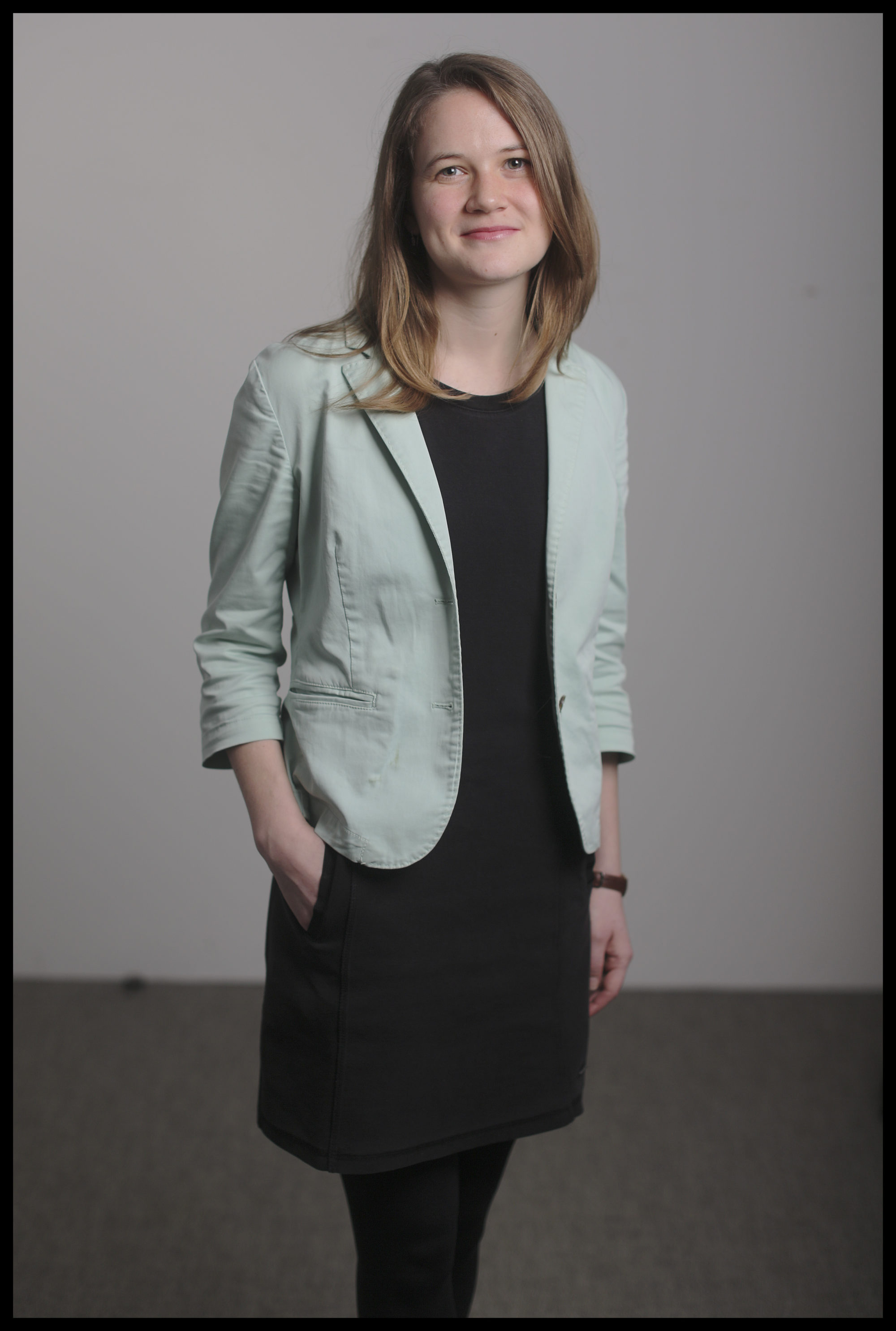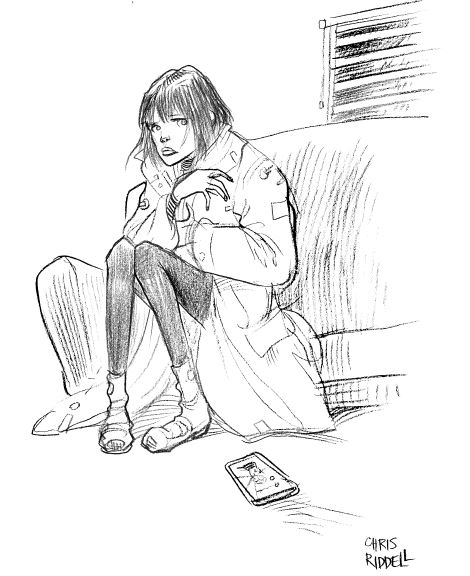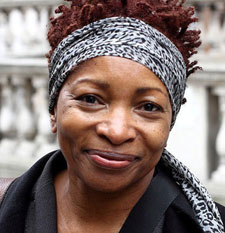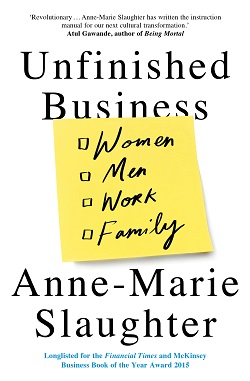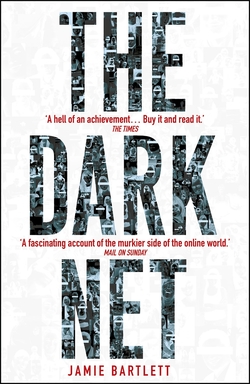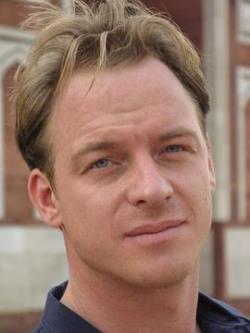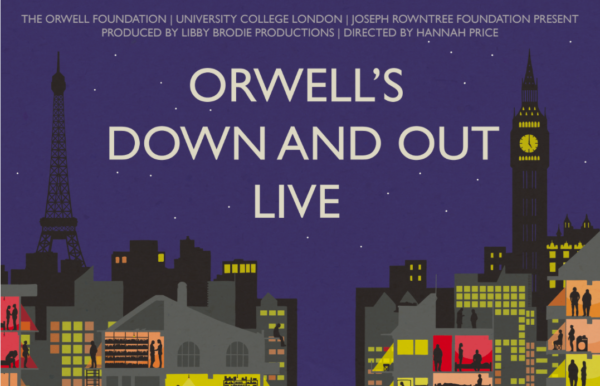
“The evil of poverty is not so much that it makes a man suffer as that it rots him physically and spiritually.” – George Orwell
George Orwell’s classic book on 1930s poverty in Paris and London is to be brought to life in an immersive performance that asks searching questions about homelessness today.
Orwell wrote Down and Out in Paris and London as a result of his own experiences sleeping rough and working on what would now be called zero-hours contracts in hotel kitchens. The performance also draws on other Orwell work including his diaries, The Spike and A Clergyman’s Daughter. Readers include writers, activists, politicians, campaigners and young people who have been homeless. In a multi-disciplinary production, modern stories from the streets are experienced alongside the Orwell text.
The performances – in London on 6th June as part of UCL’s Festival of Culture, and Paris in late September – are by the same team who produced the acclaimed reading of the whole of 1984 on a single day in 2017. Each performance will be accompanied by discussions and workshops on the contemporary challenges of homelessness and poverty.
The event is the result of a collaboration between The Orwell Foundation, The Joseph Rowntree Foundation, Libby Brodie Productions and UCL’s Festival of Culture. It is supported using public funding by Arts Council England.
The Director of the Orwell Foundation, Jean Seaton, said
“We are proud to be re-imagining Orwell’s work to focus on contemporary poverty, to use the power of the performance to shed new light. It is thrilling to be able to connect to our colleagues in Paris in this joint creative and intellectual piece of work . But we are ashamed that is so necessary.”
The Production
Drawing on the iconic works of Orwell and combining these with real-life, modern-day testimonies, Orwell’s Down and Out Live is an immersive production which focuses on the phenomenon of homelessness both in the past and present day. Read live by politicians, artists, celebrities, activists and members of the homeless community and using a combination of music, story-telling, film and performance this live theatrical event, directed by Hannah Price, will run in London for one day only ahead of a performance in Paris.
Director Hannah Price, said
“Orwell has always been known as the voice of the dispossessed: a political stalwart examining destitution, poverty and the dangers of a society that doesn’t value every member equally. I’m honoured to be using his extraordinary words as the backbone of an immersive performance that places the shocking rise of homelessness at its centre. Using live readings, music, sound and storytelling Orwell’s Down and Out Live aims to explore, examine and illuminate. After the success of 1984 Live I’m delighted to be teaming up with Libby Brodie Productions and the Orwell Foundation once again, on this important and timely piece of work.”
Libby Brodie, of Libby Brodie Productions, said,
“After the success of the UK’s first ever live reading of Orwell’s Nineteen-Eighty-Four last year, watched live by hundreds and streamed online globally by tens of thousands, LBP is honoured to create another relevant production using Orwell’s iconic work. With a shocking 60% rise in homelessness since 2012, this re-imagination of “Orwell’s Down and Out Live” will use the powerful medium of theatre to bring to life the topic of rough-sleeping and the hidden homeless in an immersive, live theatrical event in both London and Paris”.
The events will be accompanied by new poetic responses in English and French and a short film will be produced by the award-winning film-maker Edwin Mingard.
For those unable to attend the London venue, both performances will be live streamed and viewing events will be arranged in libraries and community hubs across the UK, with both the London and Paris performances being recorded in full and being made publicly available.
Inspiring social change
The Orwell Foundation is grateful for the continuing support from The Joseph Rowntree Foundation, who are devoted to inspiring social change. Much has improved since the Beveridge Report in 1942 categorised the five evils in society – squalor, ignorance, want, idleness, and disease. But there has been a significant increase in the numbers of homeless people both in the UK and in France. Down and Out in Paris and London – LIVE will shine a light on the issues and foster a cross-cultural dialogue culminating in a policy seminar on homelessness. Campbell Robb, the Chief Executive of The Joseph Rowntree Foundation, said
“We all believe in justice and compassion and protecting people from harm. Orwell’s words are still unsurpassed in articulating what happens to people when that protection falls short.
Now low pay, insecure work, high housing costs, debt and insufficient benefits are pushing people to the brink. Hearing Orwell’s words read by people with experience of homelessness, as well as high profile speakers will bring the realities of homelessness to a diverse audience in a powerful way. The idea is to use Orwell as he would want, to build a better understanding of modern poverty and build support for action to solve homelessness. The JRF is very proud to support it.”
UCL and the Academic Context
The Orwell Foundation have developed a fruitful partnership with UCL, one of the world’s leading universities. Last year, The Orwell Foundation and UCL collaborated with Hannah Price and Libby Brodie Productions to produce Nineteen Eighty Four: Live, the first ever live reading in the UK. Down and Out: LIVE in London will take place at Stone Nest, a short walk away from UCL’s Bloomsbury campus.
UCL’s Festival of Culture Director, Catherine Thomson, said:
“We’re proud to hold the Orwell Archive here at UCL in our Special Collections, and to have been the home of the Orwell Foundation since 2016. This event offers an extraordinary opportunity to reflect collectively on the characteristics and values of UCL which resonate in George Orwell’s writing. Like Orwell, UCL is engaged with the wider world and committed to changing it for the better. We champion radical and critical thinking, and we’re committed to integrating our education, research, innovation and enterprise for the long-term benefit of humanity.”
The performance will form the backbone of a narrative that explores and reveals what homelessness is, how it manifests and what damage is does to the individual and to society at large.
Orwell strongly believed that art and literature could make direct and long-lasting change, focusing the minds and the empathies of his audience on the social or political evils of the day. This event will fuse live art and social activism in an outburst of theatre, music and literature.
Registration
Both performances of Down and Out: LIVE will be free to the public. The London event will run for one-day only on Wednesday 6th June, 2pm-6pm, with a panel debate on how we build public will to tackle the crisis to follow at 6.30pm. Both the show and panel will take place at Stone Nest 136 Shaftesbury Ave, London W1D 5EZ. Registration for the show and panel can be made via UCL’s Festival of Culture.
